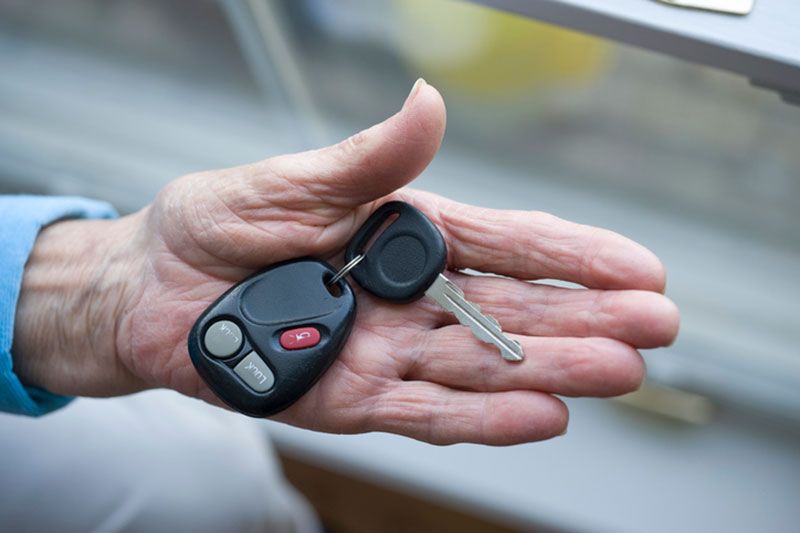
Home care services can help older adults maintain independence, even when they can no longer safely drive on their own.
It is a discussion no one wants to have with older parents, but one that will probably be required eventually. Having the capability to drive whenever and wherever we decide is an essential element in our ability to maintain independence, yet as we get older, driving can be unsafe for a variety of reasons: decreased reflex and response times, cognitive problems, poor vision, and more. If you are starting to have worries about an older parent’s capacity to continue to drive safely, it’s time to talk about the idea of giving up driving and strategizing ways to help maintain independence.
How Will You Know That It Is Time for a Senior to Quit Driving?
There are certain warning signs to watch out for that indicate the need for a senior to stop driving, including:
- Getting lost on familiar driving routes
- Missing traffic signals or signs
- Failure to yield or cutting off other drivers
- Making wider than necessary turns
- Not staying between the lines
- Appearing to be inattentive or sleepy
- An inability to judge distances properly
- Becoming easily agitated, frustrated, or angry
- Not using turn signals or mirrors properly
How Can You Start the Conversation About Giving Up the Keys?
Above all, refrain from criticizing or correcting the person’s errors when they are driving, because this may cause increased hazardous behaviors. Once the car is parked, calmly mention specific incidents of concern that you witnessed as a starting point to the bigger conversation about the necessity for the senior to cease driving.
The following tips are a good way to proceed with the conversation and to ensure you’ll be heard and taken seriously. Use the conversation to minimize the older adult’s stress and to provide a solution that will empower the individual to maintain independence.
Key Points to Keep in Mind:
- Enlist the help of others the senior knows and trusts, either in providing their own instances of concerns or perhaps in joining you when it is time for the conversation.
- Steer clear of shaming or blaming the senior.
- Keep your temperament relaxed and supportive to make sure you do not come across as angry.
- Use specific instances of troubling actions.
- Let the older adult know you’re in this together, and that together you will find a solution that ensures safety for the senior as well as other drivers and pedestrians.
- Expect resistance and defensiveness, and that it might take multiple conversations.
In the event that person remains insistent about continuing to drive, schedule a checkup and assessment with the doctor. There may be medication side effects, vision problems, or other health-related reasons behind driving issues that can be fixed; or the doctor may have more influence in convincing the senior to give up the keys.
How Can a Senior Stay Independent Without Being Able to Drive?
Thankfully, there is a straightforward solution that enables an older adult to come and go as they wish: a professional in-home caregiver from Absolute Companion Care, a trusted provider of home care in Timonium, MD and the surrounding communities.
Our care providers are available to provide transportation and accompaniment whenever and wherever a senior would like to go, including:
- Doctor appointments and procedures
- Shopping and running errands
- Social visits
- Going out to lunch or for a walk in the park
- Hair and nail appointments
- Exercise or other classes
- Even vacations or longer-destination outings
- The best part? A care provider can provide friendly company and conversations that make any outing a lot more enjoyable than going alone!
Connect with our experts in home care in Timonium,MD and the nearby areas at 410-357-9640 to inquire about our transportation services for seniors and help a senior you love safely enjoy life to the fullest.
